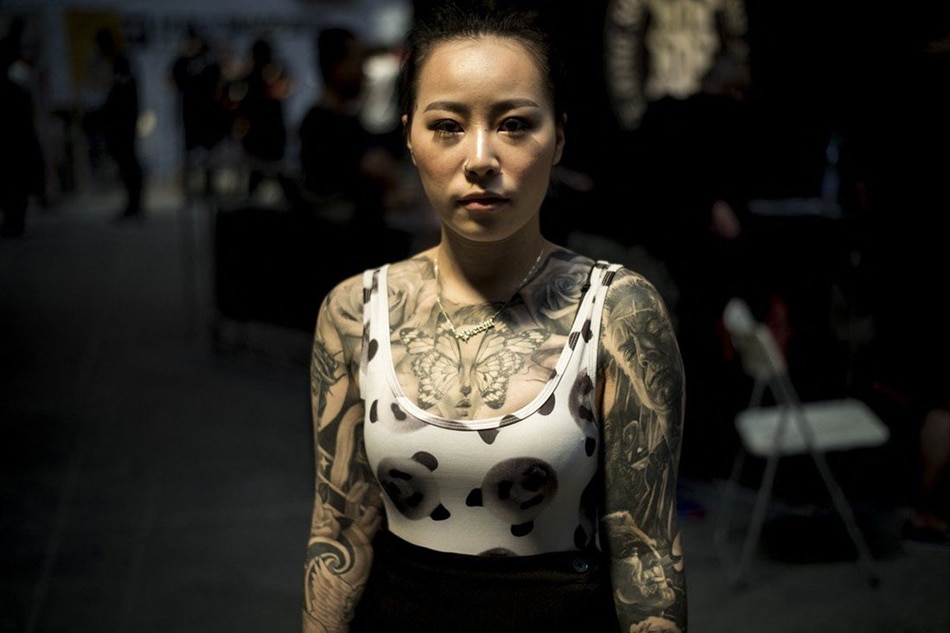China’s tattoo ban for minors criticized

[ad_1]
China’s transfer to ban tattoos for folks aged underneath 18 years outdated has been met with blended reactions as the federal government continues to develop state regulation of individuals’s lives, particularly youthful generations.
It’s the newest in a rising checklist of interventions focusing on younger folks which might be aimed toward proscribing and altering behaviour the state views as immoral or what it refers to as “non secular air pollution”.
These strikes embrace plans to bolster “masculinity” in faculties with extra male academics and extra bodily training, a ban on “sissy” and “effeminate” males within the leisure trade and bans on gaming time and dwell streaming actions for minors.
The tattoo ban for minors underneath the age of 18 was introduced earlier this month by a process drive set as much as police the behaviour of minors and: “Assist them perceive the dangers of getting tattoos, and fogeys and guardians ought to dissuade them from doing so”.
The transfer additionally displays efforts to clamp down on China’s more and more privatised beauty medical sector as circumstances of malpractice enhance. In a single case in June 2021, a tattoo parlour in Jiangsu, jap China, was sued over the usage of poisonous color pigments utilized to greater than 40 minors.
Shanghai which is taken into account China’s physique artwork capital and is residence to hundreds of tattoo parlours, introduced its personal ban already in March.
Tattoos are unhealthy as a result of … they’re unhealthy?
Inside China, many praised the transfer as essential to guard younger folks from being “seduced” into mistakenly getting a tattoo.
Guo Xiamei, an affiliate professor specialising in household psychology and adolescent growth at Xiamen College informed the China Each day that younger persons are not mature sufficient to make an knowledgeable resolution when getting a tattoo or perceive the “penalties”.
“For instance, some careers such because the civil service, policing and the army don’t welcome candidates with large tattoos. Adolescents would possibly remorse their impulsive or rebellious resolution for getting a tattoo after they develop up,” she mentioned.
One on-line commenter applauding the ban mentioned: “It will guarantee youthful folks don’t throw away their future with one thing that may damage them in different folks’s eyes.”
Hongwei Bao, a professor in Asian identification and media research on the College of Nottingham in the UK mentioned the ban displays China’s older generations’ cultural anxieties about outdoors influences similar to these of the West, towards a backdrop of rising employment and social insecurity in Chinese language society.
“At a time of heightened political management, unstable financial circumstances and intensified world geopolitical tensions, the stakes for being — or just wanting — completely different are just too excessive,” he informed the South China Morning Publish.
Many on mainland social media have been additionally essential of the transfer, whilst China’s censors labored rapidly to take away adverse feedback.
“How can this enhance a teenager’s life when there’s a lot strain on an excellent training, getting high-paying jobs after which strain to marry, have kids and personal property – that is what they assume will assist us?,” wrote one commenter.
“Does having a tattoo harm anybody else? It’s management over our lives for no actual profit. It is a resolution made by outdated, out-of-touch individuals who come from one other time and place,” wrote one other.
An extended historical past of judgment
Chinese language society’s distaste for tattooing dates again to the time of Confucius and conventional associations between physique artwork and crime and intercourse work.
“In historical China, criminals have been often inked as a type of punishment. As folks with tattoos have been simply recognisable, they often shaped gangs and have become social misfits and rebels, and subsequently are sometimes related to gang tradition,” mentioned Bao.
“With the altering occasions, the youthful era have been more and more conscious of worldwide practices and have demanded the precise to make selections about their very own our bodies, however they don’t seem to be decision-makers in at present’s China,” mentioned Bao.
By 2019 a backlash was constructing, which coincided with China reaching into the personal lives of residents in an effort to manage behaviour.
These efforts are designed to take away what some within the authorities discuss with as “non secular air pollution” which might imply something deemed unworthy by older conservative members of the federal government however are sometimes Western concepts and tendencies which have seeped into China in current a long time.
In 2018, elite athletes similar to soccer gamers, amongst whom physique artwork is a well-liked type of self-expression, have been ordered to cowl up tattoos by China’s Basic Administration of Sport (GAS).
In January 2019, musicians and actors with tattoos have been banned from all mainland Chinese language media platforms and shortly after Sina Weibo began eradicating content material that featured tattoos.
On the finish of 2021, the GAS went additional and positioned a blanket ban on new tattoos for skilled athletes and even referred to as for gamers to think about eradicating present ones completely.
Bao mentioned there was a round logic being utilized that was based mostly on different folks’s perceptions quite than private values.
“In a extremely aggressive Chinese language society, there’s an excessive amount of to lose for not becoming into the mainstream. This explains why this coverage can be endorsed by many younger folks. In different phrases, the tattoo ban could be seen as a majority resolution.”
FROM THE ARCHIVE
[ad_2]
Source link